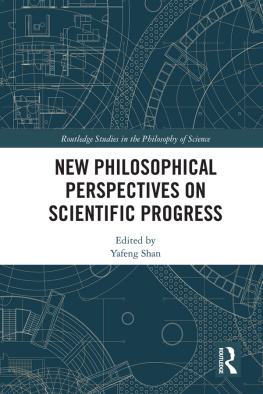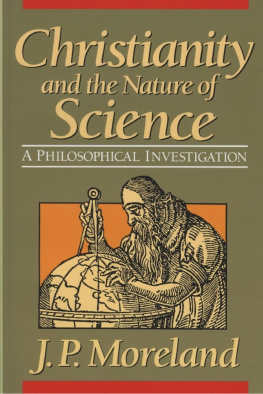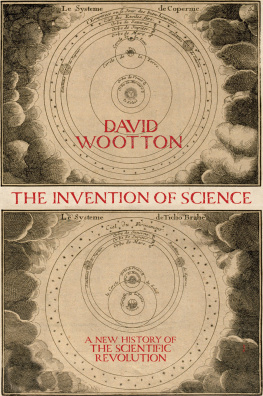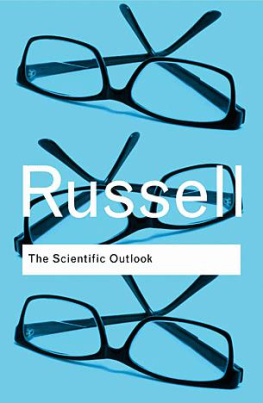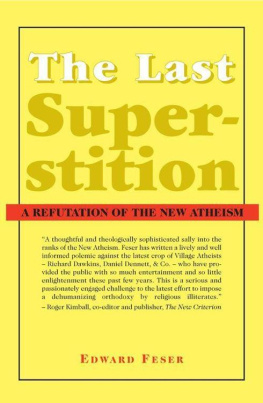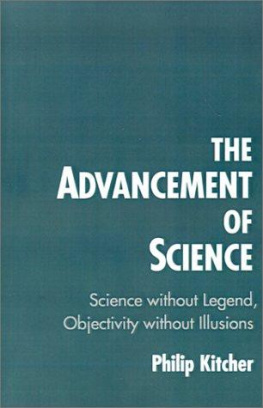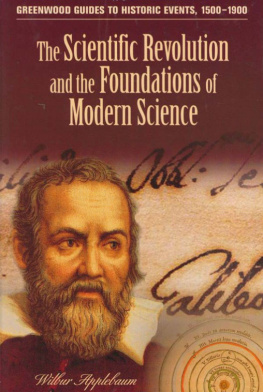Goulet - Optiques The Science of the Eye and the Birth of Modern French Fiction
Here you can read online Goulet - Optiques The Science of the Eye and the Birth of Modern French Fiction full text of the book (entire story) in english for free. Download pdf and epub, get meaning, cover and reviews about this ebook. City: Philadelphia, year: 2013, publisher: University of Pennsylvania Press, genre: Religion. Description of the work, (preface) as well as reviews are available. Best literature library LitArk.com created for fans of good reading and offers a wide selection of genres:
Romance novel
Science fiction
Adventure
Detective
Science
History
Home and family
Prose
Art
Politics
Computer
Non-fiction
Religion
Business
Children
Humor
Choose a favorite category and find really read worthwhile books. Enjoy immersion in the world of imagination, feel the emotions of the characters or learn something new for yourself, make an fascinating discovery.

Optiques The Science of the Eye and the Birth of Modern French Fiction: summary, description and annotation
We offer to read an annotation, description, summary or preface (depends on what the author of the book "Optiques The Science of the Eye and the Birth of Modern French Fiction" wrote himself). If you haven't found the necessary information about the book — write in the comments, we will try to find it.
Goulet: author's other books
Who wrote Optiques The Science of the Eye and the Birth of Modern French Fiction? Find out the surname, the name of the author of the book and a list of all author's works by series.
Optiques The Science of the Eye and the Birth of Modern French Fiction — read online for free the complete book (whole text) full work
Below is the text of the book, divided by pages. System saving the place of the last page read, allows you to conveniently read the book "Optiques The Science of the Eye and the Birth of Modern French Fiction" online for free, without having to search again every time where you left off. Put a bookmark, and you can go to the page where you finished reading at any time.
Font size:
Interval:
Bookmark:
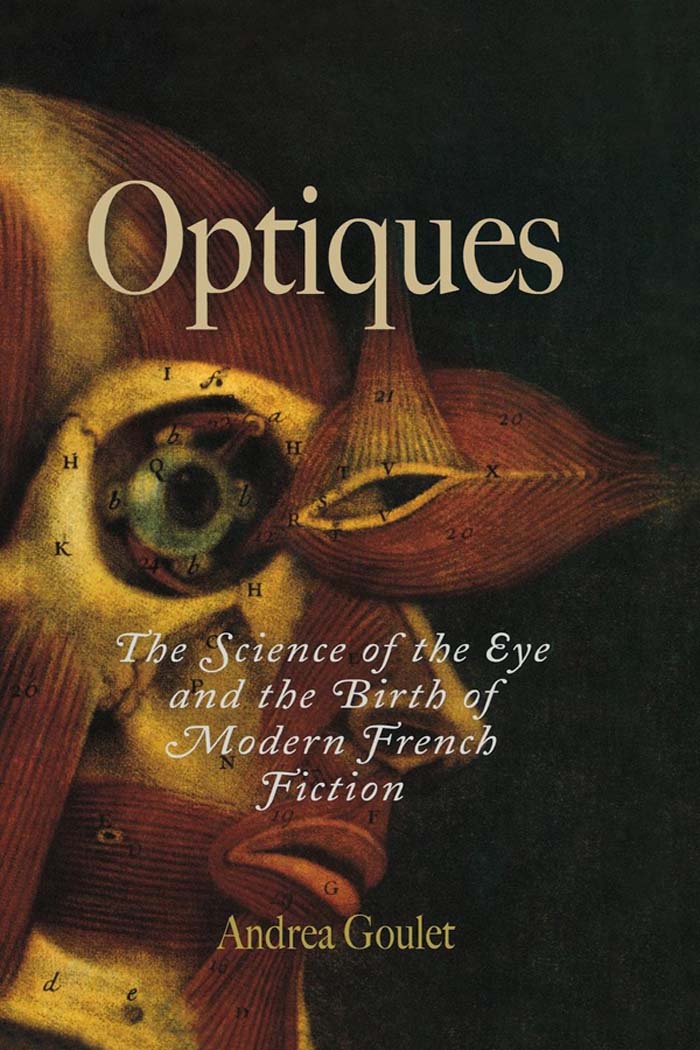
Optiques
CRITICAL AUTHORS & ISSUES
Josu Harari, Series Editor
A complete list of books in the series is available from the publisher.
The Science of the Eye and the Birth
of Modern French Fiction
ANDREA GOULET

University of Pennsylvania Press
Philadelphia
Copyright 2006 University of Pennsylvania Press
All rights reserved
Printed in the United States of America on acid-free paper
10 9 8 7 6 5 4 3 2 1
Published by
University of Pennsylvania Press
Philadelphia, Pennsylvania 191044112
Library of Congress Cataloging-in-Publication Data
Goulet, Andrea.
Optiques : the science of the eye and the birth of modern French fiction / Andrea Goulet.
p. cm (Critical authors & issues)
ISBN-13: 9780-81223931-7 (cloth : alk. paper)
ISBN-10: 08122-39318 (cloth : alk. paper)
Includes bibliographical references and index.
1. French fiction19th centuryHistory and criticism. 2. French fiction20th centuryHistory and criticism. 3. Vision in literature. I Title. II. Series
PQ653 .G68 2006
840.9/3561dc22 | 2005046708 |
For my parents:
Denis Andr Goulet and
AnaMaria Reynaldo Goulet
In Bouvard et Pcuchet (1881), Gustave Flaubert pokes fun at the fads and follies of his age by allowing his characters to cycle through a series of dilettantish obsessions. Among the many scientific, pseudoscientific, and philosophical discourses debunked through the heroes ineptitude, we find a discussion of the nature of light. Bouvard and Pcuchet, who have been roaming about in a hazily metaphysical mood, turn their attention to a candles flame: As they watched the candle burn, they speculated as to whether light is found in the object or in our eye. Since stars may already have died out by the time their light reaches us, we may be admiring nonexistent things.occurring within the eye, such as floaters, blur circles, sunspots, and afterimages. But as Bouvard and Pcuchets confusion suggests, the question of objective versus subjective origin for such images had not been definitively resolved by the scientific community in one direction or the other, even at this late date in the century.
In fact, if we look at the second part of Flauberts passage cited above, we find that the indeterminacy of a luminous images epistemological status leads to an even more radical ontological crisis: does what we seea star, for exampleeven exist? This step in Bouvard and Pcuchets reasoning is informed by contemporary advances in optics on the physical properties of light. In 1849 and 1869, respectively, the French scientists Fizeau and Foucault had published well-circulated research on measuring the speed of light. Their discoveries act as a topical premise for Bouvard and Pcuchets doubt and lead to the broader question: given that the distance of astronomical bodies surpasses the speed of light so as to allow us to see stars that no longer exist, how can we be sure that anything we perceive is real? The slippage, so typical of Flauberts text, from scientific progress to systematic doubt may seem merely comic or clichd in the context of Bouvard et Pcuchets deflationary irony. But the very triteness of Flauberts ides reues affords modern scholars important insights into the vocabularies and premises of scientific discourses circulating in the Europe of his time. Bouvard and Pcuchets reflection on light crystallizes the substantive epistemological question that gripped contemporary thinkers from Descartes, Condillac, Malebranche, and Buffon to Helmholtz and Giraud-Teulon: how can subjective perception guarantee knowledge of external reality? Or, what is the relation between what the eye sees and what the mind knows?
This book argues that these questions of visual epistemology, while scientific and philosophical in nature, fundamentally structure the semantic and symbolic logic of the modern French novelnot only through the satirical invocations of a Bouvard et Pcuchet, but more directly through the shifting elaborations of the narrative subject as defined according to visual paradigms. From Hugos scenes of hallucinatory blindness, Balzacs elaborations of visionary science, and Villiers obsessive interest in visual pathology through to the nouveau romans appeals to pure opticality, nineteenth- and twentieth-century French fiction has harnessed the metaphorics of sight in the service of narrative form. Consider the following topoi of literary studies: the metaphysics of the visionary novel, the omniscient eye of realist narration, the positivist gaze of scientific naturalism, the hysterical warp of decadent vision, the kaleidoscope of Proustian subjectivity, and the fragmented antiperspectivalism of postmodern fiction. Though locally contested, each of these has become a critical touchpoint in broad histories of the modern French novelindeed of modern fiction more generally. But critical and literary histories have not adequately connected the internal tensions of these topoieach implicitly associating visual perspective with narrative formto the scientific and philosophical contexts of the shifting history of vision itself. This book pays critical attention to the rich contestations and overlapping debates about the nature of vision and thoughtdebates increasingly elucidated through the field of visual studiesin order to refine and revise a history of narrative perspective.
In one of the most important interdisciplinary initiatives of recent years, scholars of art history, philosophy, and history of science have problematized a static conception of the human seeing subject by calling attention to the changing ways in which vision is imagined, defined, and articulated across various ages and cultures.and rightly so, as there is still much work to be done in what might be called the interstices of visual culture, the moments where opticality is neither dominant nor counterhegemonic, but subject to complex and fruitful internal tensions.
By recovering the scientific and philosophical debates about vision that informed nineteenth-century European thought, this book hopes to nuance and revise current critical views on the modern novel, adding historical precision to the oft-cited typing of realism as a visual mode. In contrast, for example, to the conceptual vision associated with Proustian modernism, Optiques reasserts the materialist bases of realist fiction by establishing a genealogy of popular literary genres as fundamentally opticalthat is, as articulated according to bodily notions of sight.
One of the most suggestive moments for the study of visuality is 1830, a date that not only holds literary and historical importance for France
Clearly, this history of nineteenth-century conceptions of objectivity and subjectivity is neither simple nor static. But by studying the varied intersections between visual concepts and evolving narrative techniques in nineteenth-century France, we can begin to track some of the terms of debate as they shifted from 1830 to 1910. Starting from the premise that changing notions of how the eye sees have formed and informed articulations of how the mind knowsthat optics is directly related to epistemologythis book further connects visual epistemology to the development of the modern novel in its most important transformative stage. It recovers an untold literary history by bringing to bear the scientific and philosophical context of visuality not just on the literary metaphorics of vision but on the very logic of realism and its generic offspring. More specifically, the book finds that post-Lockean debates between objective vision and subjective vision crucially structured narrative tensions: between visionary idealism and realist temporality in Balzacs
Font size:
Interval:
Bookmark:
Similar books «Optiques The Science of the Eye and the Birth of Modern French Fiction»
Look at similar books to Optiques The Science of the Eye and the Birth of Modern French Fiction. We have selected literature similar in name and meaning in the hope of providing readers with more options to find new, interesting, not yet read works.
Discussion, reviews of the book Optiques The Science of the Eye and the Birth of Modern French Fiction and just readers' own opinions. Leave your comments, write what you think about the work, its meaning or the main characters. Specify what exactly you liked and what you didn't like, and why you think so.


